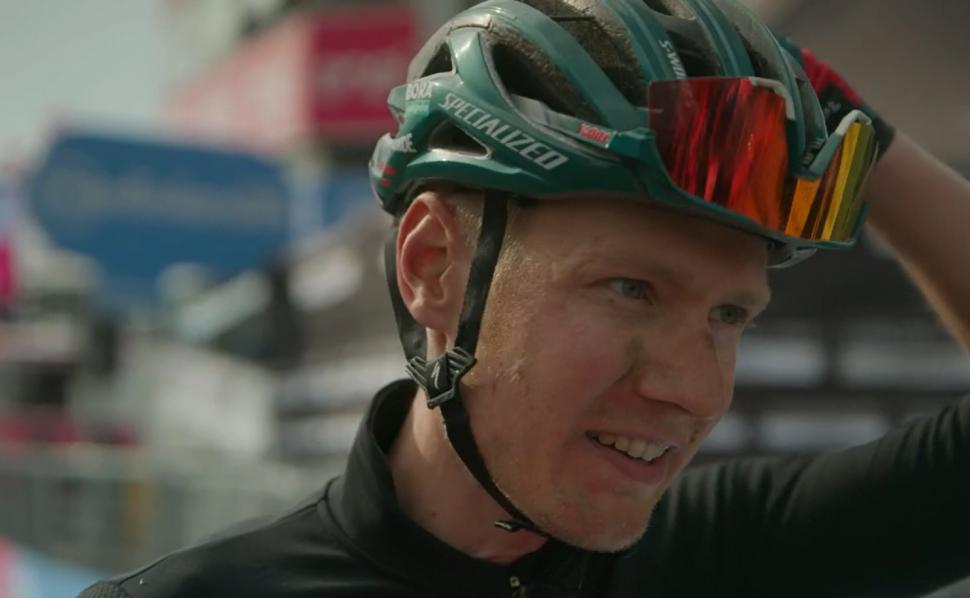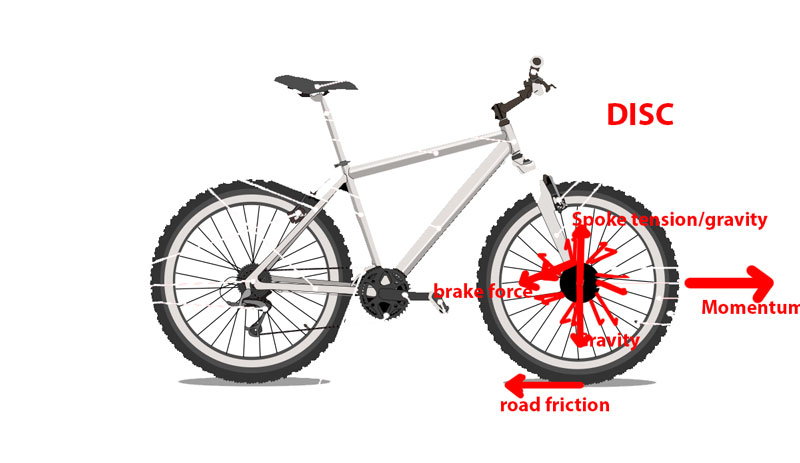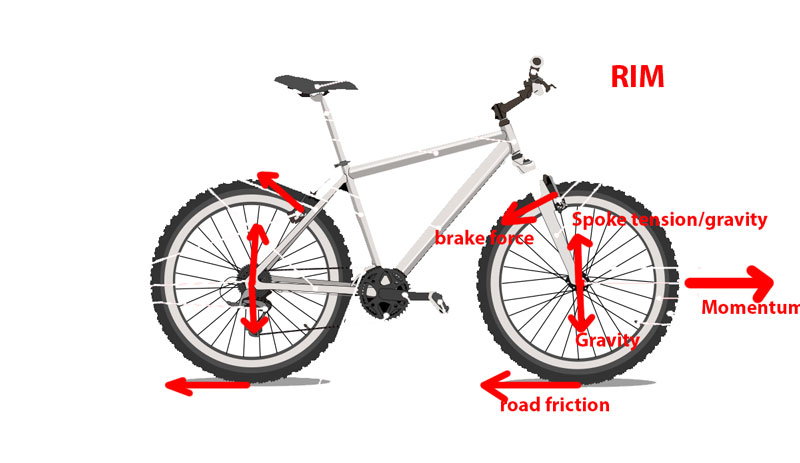- News
- Reviews
- Bikes
- Components
- Bar tape & grips
- Bottom brackets
- Brake & gear cables
- Brake & STI levers
- Brake pads & spares
- Brakes
- Cassettes & freewheels
- Chains
- Chainsets & chainrings
- Derailleurs - front
- Derailleurs - rear
- Forks
- Gear levers & shifters
- Groupsets
- Handlebars & extensions
- Headsets
- Hubs
- Inner tubes
- Pedals
- Quick releases & skewers
- Saddles
- Seatposts
- Stems
- Wheels
- Tyres
- Tubeless valves
- Accessories
- Accessories - misc
- Computer mounts
- Bags
- Bar ends
- Bike bags & cases
- Bottle cages
- Bottles
- Cameras
- Car racks
- Child seats
- Computers
- Glasses
- GPS units
- Helmets
- Lights - front
- Lights - rear
- Lights - sets
- Locks
- Mirrors
- Mudguards
- Racks
- Pumps & CO2 inflators
- Puncture kits
- Reflectives
- Smart watches
- Stands and racks
- Trailers
- Clothing
- Health, fitness and nutrition
- Tools and workshop
- Miscellaneous
- Buyers Guides
- Features
- Forum
- Recommends
- Podcast
news
 Wilco Kelderman (screenshot AD report)
Wilco Kelderman (screenshot AD report)"They just collapsed because of the pressure": Giro d'Italia hopeful blames disc brakes overheating for ending GC challenge
Along with Simon Yates, Wilco Kelderman's general classification hopes all but disappeared on stage nine of the Giro d'Italia, however, unlike Yates, the Bora-Hansgrohe rider has some gripes about his equipment letting him down — specifically, his disc brakes...
Kelderman, who finished on the podium at the Giro in 2020 when Tao Geoghegan Hart won the race, twice stopped on the descent of the first-category Passo Lanciano, an enforced stoppage he said afterwards was due to a broken spoke.
Speaking to Dutch newspaper AD, Kelderman blamed the problem on his disc brakes overheating.
"It's just shit," he said. "On the descent of the penultimate climb I broke a spoke from my wheel. I think disc brakes get very hot and those spokes then get warm.
> Everything you need to know about disc brakes — read our definitive guide
"They collapsed because of the pressure, it was a very fast descent. I had to change bikes twice and I was already exhausted before the climb started. Then I knew it wasn't going to work anymore. I also had some back pain, so it wasn't my day.
"The Giro is not over yet. Maybe I can still go for a stage win. The preparation was just not good. You hope it's good enough, but you know it's going to be hard. That's too bad."
> 8 reasons not to get disc brakes — find out the hassles before you switch
The stage was won by Bora-Hansgrohe teammate Jai Hindley, who finished second the year Geoghegan Hart won the maglia rosa — back when the pair both rode for the team then racing under the Sunweb banner.
Earlier this year four-time Tour de France winner Chris Froome revealed that he still regularly experiences disc brake rubbing.
> Chris Froome STILL has disc brake problems
Froome's most recent comments came via YouTube in a follow up to a video he posted last year, in which he said, "I don't think the technology is quite where it needs to be" and mentioned concerns about over rubbing, overheating and the potential for rotors to wrap.
"My entertainment with disc brakes continues. I think they're sort of work in progress. I think the technology is improving but the margins are so slim. You do a big descent and the alignment moves completely so I need to stop and readjust everything again," the Israel - Premier Tech rider said in March.
"No matter how many mechanics I’ve spoken to or taken the bike to, you just can't get 100 per cent on top of that. [You] always… start getting a few issues as soon as you start doing some some really big descents.
"But c’est la vie, for the time being. Just put the earphones in and pretend I can't hear it."
Dan is the road.cc news editor and joined in 2020 having previously written about nearly every other sport under the sun for the Express, and the weird and wonderful world of non-league football for The Non-League Paper. Dan has been at road.cc for four years and mainly writes news and tech articles as well as the occasional feature. He has hopefully kept you entertained on the live blog too.
Never fast enough to take things on the bike too seriously, when he's not working you'll find him exploring the south of England by two wheels at a leisurely weekend pace, or enjoying his favourite Scottish roads when visiting family. Sometimes he'll even load up the bags and ride up the whole way, he's a bit strange like that.
Latest Comments
- chrisonabike 1 sec ago
Well it's all about road safety - if they're at the keyboard that should keep them on from beginning a statistic....
- chrisonabike 8 min 40 sec ago
What if it was "Tommy Robinson" in disguise, trying to sneak back in and make a point?...
- chrisonabike 13 min 37 sec ago
Trolling is certainly available on road.cc but served by others *. Cat-fights on the other hand......
- OldRidgeback 28 min 16 sec ago
Hmm, it won't allow much seat post adjustment. And if there had been a more gentle curve rather than a massive stress concentration, then it'd make...
- Velo-drone 38 min 38 sec ago
I think that you deserve some opprobium for judging other people's lives without walking in their shoes...
- David9694 1 hour 3 min ago
yes - as I often reflect when I meet one out of my country lanes and their idea of courtesy is to stop, effectively blocking the road. "you're the...
- slc 2 hours 19 min ago
A couple of weeks before the overnight installation, I was suggesting to a friend that the council would have to give up or at least change plans...
- Geoff H 5 hours 39 min ago
None of the commenters below noted that NONE of the car pictured are going to "back out quickly"! Are those bollards solid steel posts? Or are they...
- ChrisA 10 hours 9 min ago
Just seems like a general lack of consideration; less regard for (what were) social norms - everything from rubbish to rubbish driving....
- mdavidford 10 hours 47 min ago
This is going to give cross people something else to hang their crossness on.
Add new comment
41 comments
We'll keep getting these type of events happening. It's only then the teams will recognise that rim brakes are the only answer to the welfare of riders and the bottom line of sponsors. Hopefully the UCI will step in and render disc brakes illegal due to various dangers.
Disc brakes. Great on motor vehicles. Dangerously shite on 7 kilo spoked road bikes.
Shurely "direct (inline?) disc caliper brakes" vs. "indirect disc caliper brakes" - as opposed to "internal disc brakes" (drums) or "rim disc brakes" (spoon brake / sole of Vans applied to tyre)?
I guess it also depends on how hard you brake because the rear wheel (of two in-line) can also become a drag brake if you lock it up / stomp it on a fixie? Not recommended on a trike as it has a similar outcome to locking the front on two wheels.
I appreciate all kinds (when properly set up) except for the foot on tyre obvs. As for avoiding danger is it not mostly a question of modulation and "grabbiness"? After all at some point you lock the wheel on any system. The traditional discs do have an advantage of being less prone to fade, no? But yes, I have had a tyre blowout because of braking / breaking through a rim. Spectacular but no injury. Entirely avoidable - due to youthful exuberance and total lack of maintenance.
Or, alternatively, you can just consider the cheap and nasty OE front wheel on my Vitus gravel (the one where 2 crap rear wheels failed inside 2 years) has been down many descents in the Lakes and on the Pennine Bridleway when loaded with 75 kg of rider and 25 kg of trailer when braked with TRP Spyres. Nothing has yet happened to the front wheel.
CX-Ray spoke strength = 1600 MPa
Temperature derating is about 60 MPa at 200 degC, which is only a 4% loss in stregth.
I'd say heat isn't a factor.
I'll throw in my tuppence.
A disc wheel will put the spokes under more stress, because the inertia of the wheel under braking is so close to the hub. The spokes will be under more stress than the inertia of braking on a rim. It is my understanding that because the disc brake will stop the wheel much quicker, it puts the spokes under greater stress. But I don't know if that would be a factor in breaking spokes.
Not quite correct. A disc wheel will put some spokes under more stress- but only about as much stress as a solid sprint effort would put into the other spokes on the same wheel. Spokes on a rear wheel are normally laced in a "cross" pattern, and as a result spokes are either being pulled or pushed depending on the forces at the hub. When you're pedalling, the pulling spokes increase in tension, while the pushing spokes reduce in tension. When you brake it's the opposite, but the the forces on the spokes aren't any greater under braking than acceleration.
I disagree.
When accelarating even the best sprinters in the world are not going to be going from 0-60kph in a few seconds. They may get there after a long train of team mates have got them up to speed before the big effort. In decellaration you are bringing the speed, momentum and the inertia all from possibly anywhere up to 80kph in a pro race on a steep decent down to a much lower speed in a few seconds. That is putting substantially more stress on the spokes than a quick burst from 0. Even track sprint cyclists dont accelerate that fast and they probably have disc wheels anyway.
The front wheel typically plays no part in acceleration, so disc brakes are going to put the spokes under more stress than normal riding. This is why radial spokes won't work well with disc brakes.
Specialized bikes with Roval wheels, right? All of which, as far as I can tell, have steel spokes. They're not going to be affected by heat from the rotor.
Spokes fail because they're defective, because the wheel wasn't assembled properly (not stress-relieving J-bend spokes is the biggie there) or because the wheel as whole is badly designed.
I'd be surprised if heat was that much of a factor.
Disc brakes have to transmit the stopping power to the ground via the spokes, so it's not unusual to break a front wheel spoke if you're doing a lot of braking. (Of course, rim brakes transmit the stopping power through just the rim and tyre which is why you can get straight-laced rim brake wheels).
How then does the braking force act upon the mass of the rider and the frame?
I was just meaning the forces to the ground. The thing actually slowing the rider and frame would be the front forks and that's the same for rim and disk brakes though the force is acting on a different part of the forks.
Still forces going through spokes and hub to fork in rim brake scenario.
How so? And how do radial spokes deal with the torque?
Here's a handy diagram:

Consider that a rim brake can transmit force from the fork, through the caliper, to the top of the rim (where the brakes are applied) to the ground without needing to employ the spokes, but a disc brake needs to transfer force from the hub (centre of the wheel) to the ground and that can only be through the spokes.
The rim brake still needs the spokes to hold the wheel in shape or the rim would move backwards in relation to the bike until it touched the hub, the spokes from the hub to the rear portion of the rim at any given time have additional tension that prevents this. The tension in the spoke will increase until the spoke reaches the rearmost point and then will decrease until the spoke reaches the foremost point and then repeat. Disc brakes spread the load among all the trailing spokes whichever part of the wheel they are on and the additional tension is constant so disc brakes could be putting less stress on the wheel depending on how it is built.
I think we need to distinguish between the torque and the radial tension. With rim brakes, there's no torque transmitted through the spokes, though there will be the usual radial tension plus a small additional tension (and reduced tension) of about 5% as the spokes do have to keep the hub in the right place. All the torque is transmitted through the rim.
With disc brakes, there's all of the torque that gets transmitted through the spokes (the only route possible to get from the rotor to the ground) and there'll be a similar change in radial tension. In theory you could radially lace the non rotor side of the front wheel, but it's a bad idea as the hub is likely to share the torque amongst both sets of spokes.
I love these discussions! At some point though I always see this:
https://xkcd.com/123/
Nice one.
I'll just throw in this piece about how airplane wings actually generate lift: https://www.cam.ac.uk/research/news/how-wings-really-work
(Relevant XKCD: https://xkcd.com/803/)
The radial tension is there because the rim brakes cannot apply a torque, but in both cases they are doing the same work. The constant torque from the disc brake is better for the spokes than the oscilating forces of the rim brake.
I'm going to have to refer you to the late great Sheldon Brown (except that it's not him, it's John Allen): https://www.sheldonbrown.com/torque-spoking.html
Also found this which has a graph! https://www.comsol.com/blogs/why-do-road-and-mountain-bikes-have-different-spoke-patterns?setlang=1
How can they be doing the same work if one has torque and one doesn't? The same total work is performed by the spokes/rim/fork combination, but not by the spokes alone. It's also common for disc brake wheels to have a larger number of spokes to better share the braking load, similar to how rear wheels need more spokes to transmit the pedalling forces to the rim.
I think the fork is only transferring force to the hub/spokes but I accept that modern rims are much stiffer than the ones I used to build wheels with and so could be transferring some forces around the circumference bypassing the spokes. Looking at your graph, there seems to be minimal difference in rim loading for disc brake wheels with tangential spokes when compared with rim brakes for either spoke layout, that suggests similar spoke loading in those three designs.
The idea that the rear wheel needs more spokes to transmit pedalling loads is also suspect, how many riders can accelerate faster that they can brake, considering that the normal weight distribution on a bike is about 40/60 front to rear you would be popping a wheelie through applied torque long before you were doing a stoppie while braking.
Acting as a spokesperson?
Sheldon was the spokesperson, John Allen the rimmaster...
I think that deserves a rimshot.
Spot on. We will go full circle. Rim brakes are infallible.
Disc brakes were not meant for lightweight, tight clearance use on a spoked wheel. Great on motor vehicles where weight, clearance and heat can be easily tolerated. But your 6 to 8 kilo racer?
Infallible? Really? Wilco Kelderman would disagree, he crashed on a fast descent at the 2016 Tour due to melting tubular glue - caused by rim overheating.
You are right of course but don't waste your breath you will never get through to the fashionistas.
Deep down we all know disc brakes on a road bike are ridiculous and unnecessary.
The manufacturers are literally pissing themselves laughing, I bet they never thought anyone would actually fall for it.
Wheel makers aren't going to get much money from me now I don't have to worry about wearing out the rims on a commute to work in all weathers.
So spokes never broke before disc brakes then?
Since Alu has a melting point of 600+ C and its air gapped from the disc (relatively speaking) I find it hard to believe they had any involvement.
Anyone know if what Wilco suggests is possible - ie heat from a disc brake causing a spoke to overheat and break? A bit of actual physics would be interesting.
Pages